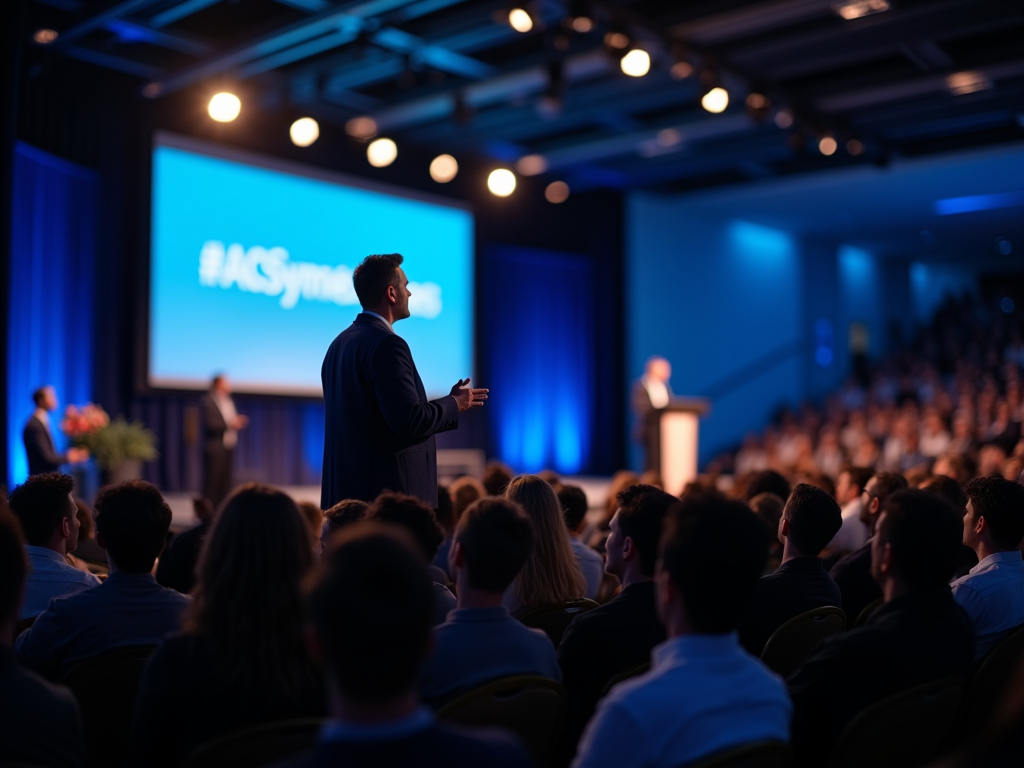Successfully marketing an event requires a well-thought-out strategy that encompasses every stage of the planning process. A robust event marketing strategy not only attracts the right audience but also ensures that your event generates leads and builds lasting relationships. In this article, we will delve into key elements that contribute to developing a successful event marketing strategy, enabling you to achieve your goals and objectives.
Define Your Goals and Objectives

The first step in creating a successful event marketing strategy is to clearly define your goals and objectives. Establishing what you want to achieve will guide all subsequent planning decisions. Consider the following goals when defining your strategy:
- Increase brand awareness
- Generate leads
- Engage customers and stakeholders
- Launch a new product
- Network with industry professionals
Each goal should be Specific, Measurable, Achievable, Relevant, and Time-bound (SMART). This framework will help you determine success indicators and evaluate the event’s effectiveness post-implementation. Additionally, setting clear objectives provides a foundation for budget allocation, resources, and marketing efforts.
Identify Your Target Audience

Knowing your audience is crucial to tailoring your event marketing strategy. Understanding who your ideal attendees are helps in the development of relevant content and messaging that resonates with them. Start by developing audience personas based on demographics, interests, and behavior. Consider these factors when identifying your target audience:
- Age range
- Industry and job roles
- Interests and preferences
- Location
- Previous event attendance
By having a deep understanding of your target audience, you will be better positioned to create engaging marketing materials, host relevant speakers, and design sessions that provide real value. Furthermore, this knowledge will inform the selection of appropriate channels for outreach and promotion.
Once you have defined your goals and identified your target audience, the next step is to develop a comprehensive marketing plan. This plan should outline strategies and tactics for promoting your event through various channels. Key components to consider include:
- Social Media Marketing: Leverage platforms like Facebook, LinkedIn, Instagram, and Twitter to create buzz around your event. Utilize hashtags, share updates, and engage with your audience.
- Email Marketing: Send personalized invitations and newsletters to your email list. Create a series of reminder emails as the event date approaches.
- Content Marketing: Develop blog posts, case studies, and videos that highlight the event’s value. Utilize SEO strategies to ensure the content reaches a broader audience.
- Paid Advertising: Invest in targeted ads on social media and search engines to reach specific segments of your audience who may be interested in attending.
- Networking and Partnerships: Collaborate with influencers, sponsors, and other event organizers to expand your reach through cross-promotion.
The goal of your marketing plan should be to create awareness, generate excitement, and drive registrations. Be prepared to adapt and refine your tactics as you gather feedback and analyze data throughout the promotional process.
Measure Your Event’s Success
After executing your event marketing strategy, measuring success is vital. This allows you to assess whether you achieved your initial goals and objectives. Start by collecting quantitative and qualitative data related to participation, engagement, and feedback. Key metrics to track include:
- Number of registrations and attendance
- Engagement rates on social media
- Lead generation and conversions
- Feedback from attendees via surveys
- Return on Investment (ROI)
Utilizing this data can highlight areas of strength and improvement for future events. Additionally, qualitative feedback can provide insights into the attendee experience, which is invaluable for future planning. Implementing changes based on the analysis will help you optimize future event marketing strategies and ensure ongoing success.
Utilize Post-Event Marketing Strategies
Post-event marketing is just as essential as pre-event efforts. Engage attendees after the event to solidify relationships and keep your brand top of mind. Consider the following post-event strategies:
- Follow-up Emails: Send thank-you notes to attendees and provide them with resources or content generated during the event.
- Social Media Recap: Share highlights, photos, and video content on social media platforms to keep the event’s momentum going.
- Surveys and Feedback Requests: Reach out to attendees for feedback about their experience and ways to improve future events.
- Content Creation: Produce blog posts or case studies about the event to share insights and key takeaways with a broader audience.
- Nurture Leads: Continue to engage potential leads through targeted communications and offers.
Using these strategies will ensure you maintain the relationship with your audience and optimize any leads generated during the event, ultimately contributing to your overall business growth.
Conclusion
Building a successful event marketing strategy requires thoughtful planning, clear objectives, and a deep understanding of your audience. By outlining your goals, identifying your target demographic, creating a well-rounded marketing plan, measuring your event’s success, and utilizing effective post-event strategies, you can ensure your event not only meets but exceeds expectations. Continuously evolving your approach based on data-driven insights will lead to consistent improvement and enhanced effectiveness in future events.
Frequently Asked Questions
1. What is the first step in creating an event marketing strategy?
The first step is to define your goals and objectives. Establishing what you want to achieve guides the entire marketing process.
2. How can I identify my target audience for an event?
Identify your target audience by analyzing demographics, interests, and behavior. Develop audience personas to guide your marketing efforts.
3. What marketing channels should I use for my event?
Utilize various marketing channels such as social media, email marketing, content marketing, paid advertising, and partnerships to promote your event effectively.
4. How can I measure the success of my event?
Measure success by tracking key metrics such as registration numbers, engagement rates, lead generation, attendee feedback, and overall ROI.
5. What should I do after the event to maintain engagement with attendees?
Engage with attendees post-event by sending follow-up emails, sharing highlights on social media, requesting feedback, and nurturing leads.





